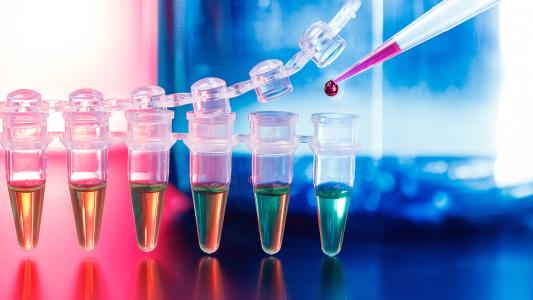Researchers in India have developed a new blood test kit that’s fast, portable, and accurate — and they’re hoping it’ll bring better healthcare to people in remote areas.
The challenge: Blood tests are a common way to monitor patients’ health — they can be used to track the efficacy of treatments, identify diseases or disease risk, and more.
But in rural and remote areas, doctors might not have access to the lab equipment needed for the tests. That can mean patients either have to travel to the nearest place with the equipment — something that’s not always possible — or simply skip the tests.
When compared to the results of standard lab equipment, it delivered an almost perfect match.
A portable blood test kit: Two researchers in India have designed a low-cost, portable blood test kit that can analyze samples anywhere there’s electricity.
The kit is largely autonomous, with a user-friendly interface, and it can provide glucose levels in just 30 seconds. Most importantly, it’s accurate — when compared to the results of standard lab equipment, it delivered an almost perfect match.
How it works: Once a blood sample is obtained, the device automatically mixes it with an ideal amount of reagent — something that triggers a chemical reaction that makes it easier to detect or measure a specific substance in a sample.
For their study, the researchers used a commercially available reagent for measuring glucose levels to show how the blood test kit could be used for diabetes monitoring.
After the mixing, light is shone on the sample/reagent combination. A Raspberry Pi computer measures the light’s intensity after it passes through the liquid and uses that data to determine the amount of glucose in the sample.
By swapping out the reagent and wavelength of light, doctors can measure red blood cell levels instead of glucose — that could be useful for diagnosing anemia, kidney problems, certain types of cancer, and more.
Additional blood tests: Right now, the new blood test kit is limited to glucose and red blood cell measurements, but the researchers are working to expand the types of testing it can handle — they’d like to see it used to measure cholesterol, triglycerides, and more.
“The developed platform offers the advantages of automation, low cost, portability, simple instrumentation, flexibility, and an easily accessible interface,” developer Sangeeta Palekar told IEEE Spectrum.
“Overall, the proposed framework is an attractive solution to be incorporated in the low resource area as a universal platform for all biochemistry analysis simply by varying the wavelength of light and reagent,” she continued.
We’d love to hear from you! If you have a comment about this article or if you have a tip for a future Freethink story, please email us at tips@freethink.com.
